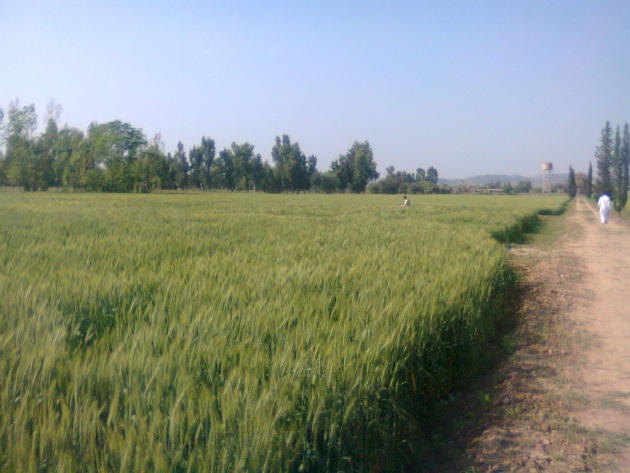Soil constitutes the basic resource of agricultural input system and the development of a country depends on its proper management. The contracting soil resources on one hand and the ever increasing population on the other hand, make it more important to use this natural resource with the best possible care. It is especially true for a country like Pakistan where the population is increasing at an alarming rate of more than 3% putting further pressure on the existing soil resource. In Pakistan the total available land is 79.61 million hectares, only about 25% (20.43 m ha) of land is cultivated. The rainfed area is 25% of this cultivated hectarage. Prominent among the natural resources are soils, forest and water. These natural resources meet the basic needs of the increasing population for food, shelter and clothes. Constraints to increasing food production are appearing anywhere-degraded, eroded and inherently poor fertile soils are located in the populous countries, including Pakistan where the food needs are growing at a faster pace. The problem is further complicated by the technological constraint, poor socio-economic conditions, poor scientific education and the philosophical and religious differences.
The importance of soil fertility and plant nutrition to the health and survival of life cannot be understated. To survive, people must have food and fiber. To meet these needs agriculture must be both productive and sustainable. For sustainable agriculture, fertility of the soil must be maintained. A fertile and productive soil is the fundamental resource for the farmer and the entire eco-system. Combined with good management practices, adequate and balanced crop fertilization offers the only hope to cope with growing food demand and conservation of soil and water resources.
In KPK the use of mineral fertilizers increased steadily after late fifties but is still less than the required quantity, with the result that the production is very low. If nutrient imbalance exists in the soil, it results nutrient stress, which in turn reduces yield and quality of corps. Therefore, a balanced supply of each nutrient in the soil is essential for crop growth, otherwise nutrient deficiency or toxicity will cause plant nutrient stress. The fertility status of the soils is determined through general level of crop yield, green house experiments, field trials and laboratory analysis. Soil testing is a better diagnostic tool than other methods because it provides the basis to determine nutrient needs before the crop is sown. Moreover, being rapid it has advantage over biological methods.




